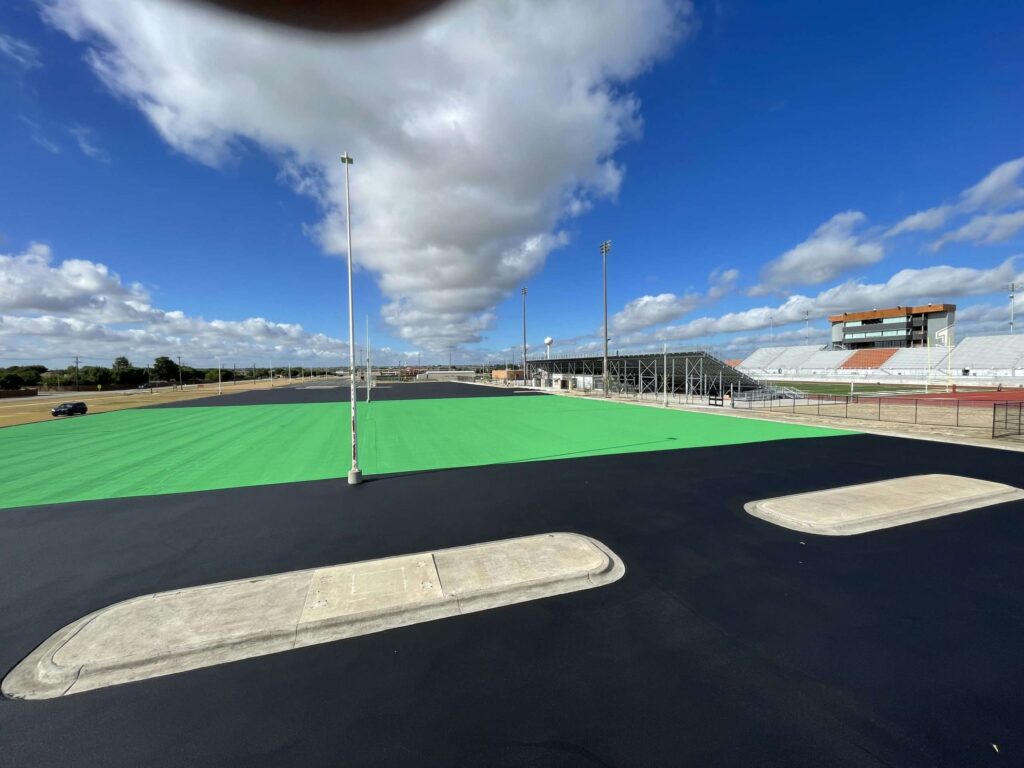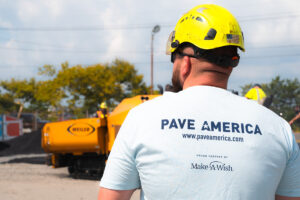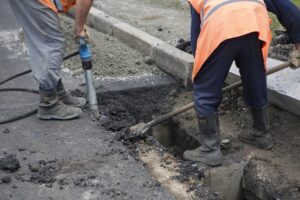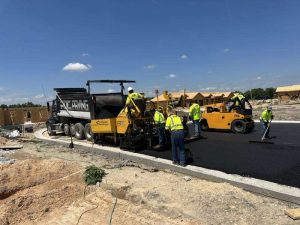Asphalt pavements can be installed quickly and economically, and they can be surprisingly durable if they are given routine care. One of the most cost-effective routine procedures is the application of a high-quality sealcoat at regular intervals. However, it is critical for sealcoating contractors to add an aggregate to the mix before applying the sealant.
What Is an Aggregate?
The word aggregate can be used as a verb, an adjective, or a noun, but the pronunciations vary slightly. As a verb, it describes the action of grouping or forming into clusters. As an adjective, it means the total resulting from the combination of separate items. As a noun, an aggregate can have the same meaning as when the word is used as an adjective, but, when used in the asphalt sealcoating industry, it means a structure or material consisting of compacted particles or fragments.
What Aggregates Do Sealcoating Contractors Use?
When sealcoating Austin TX pavements, most contractors use either boiler slag or silica sand.
1. Boiler slag is produced by the routine operations of coal-fired plants. After it is thoroughly cleaned, it can be crushed to produce angular particulates, then sized for uniformity.
2. Silica sand is basically pulverized quartz. The silica sand that is of the highest quality is typically found along ocean beaches or other locations where it has been exposed to wind and waves for a long time.
Parking lot maintenance Austin TX contractors normally choose to add silica sand to their sealcoating mixes. Sand is usually more economical for contractors as well as their customers. However, boiler slag is sometimes preferred for sealcoating asphalt pavements, and some contractors combine both types of aggregates in the mix.
Why Do Sealcoating Contractors Need to Add an Aggregate to the Mix?
Sealcoating manufacturers typically ship their products to contractors as a dry concentrate. The manufacture also includes instructions on how much water and aggregate the contractor needs to add to the concentrate to produce a liquid for application. Unless the contractor follows the manufacturer’s recipe, the product that results will be inferior. This is similar to what happens if you omit a critical ingredient from a cake recipe.
Why Are Sealcoating Aggregates Critical?
Aggregates provide numerous benefits, many of which are quite valuable to a contractor’s client.
1. Aggregates make the pavement safer. Without an aggregate, a sealcoated pavement will not provide as much traction. Better traction means that people are less likely to slip, fall, and injure themselves, and drivers are less likely to experience hydroplaning or skidding tires.
2. Aggregates make the sealant more resistant to wear. Therefore, you will not be sealcoating your asphalt pavement as frequently. Typically, a high-quality parking lot sealcoat can last two or three years, but it could wear off in half that time without an aggregate.
3. Aggregates can enhance the appearance of an asphalt surface by concealing minor flaws. Although sealcoating an asphalt pavement is by no means a parking lot repair, particles of the aggregate can fill hairline cracks or tiny depressions. As a result, the surface will appear more even, smoother, and more attractive.
4. Aggregates help strengthen the bond between the asphalt pavement and the sealcoat. A strong bond is essential if the sealant is to last and protect as it should.
If you need exceptional parking lot maintenance in Austin TX, contact RDC Paving. In addition to asphalt sealcoating, we offer asphalt crack repairs, asphalt overlays, parking lot striping and pavement marking, asphalt repairs, ADA-compliant concrete work, asphalt milling, asphalt paving, parking lot repair, concrete repairs, asphalt driveway paving, concrete driveway paving, and the installation of concrete sidewalks, parking lots, ramps, and curbs. We have an impeccable reputation for service, craftsmanship, and professionalism. We offer free quotes, so request yours today by emailing Ryan@RDCPaving.com, submitting our online form, or calling 512-920-9155.




